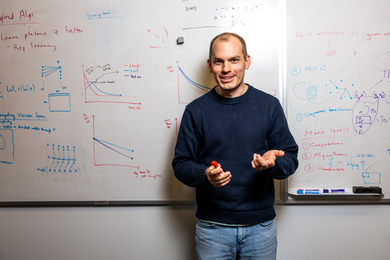Manufacturing and energy production in the former Soviet Union need to be modernized to safeguard the environment, but the extent of those industries' obsolescence and the area's precarious economy may preclude significant action for some time, according to Victor Danilov-Danilyan, minister of ecology of the Federation of Russian Republics.
Many of Danilov-Danilyan's remarks, which came during a session on the environment, economic and foreign investment development at the recent Industry Summit, addressed the aftermath of the Chernobyl accident. He acknowledged that the area contaminated by radiation was "enormous" but said it wasn't feasible to take off-line the other reactors of that design.
Twelve percent of Russia's energy comes from nuclear power plants, and half of those are of the less safe Chernobyl design, Danilov-Danilyan said. "Given Russia's current economic situation, it can't give up that six percent overnight. It's not an easy step to take."
Financial investment is needed to meet the clear need to give up unreliable and environmentally damaging means of energy production and institute conservation, he said. However, an influx of funds won't be enough; utilizing those funds requires not just revamping existing enterprises, but "restructuring of the whole economic system," Danilov-Danilyan said.
Capital is needed for many other things in the republics besides new means of energy production and environmental protection, he added. "The entire situation in Russia is such today that investment is absolutely essential in almost every respect."
Safer types of energy production such as hydroelectric power present problems of their own, Danilov-Danilyan said. For example, the Volga River flows through densely populated areas that need electricity, but the flooding and relocation of people that a hydroelectric dam would require made that idea impractical, he noted.
On the bright side, Danilov-Danilyan said that of the 17 million square kilometers of land in Russia, one-third is totally untouched by economic activity. "It is in fact a jewel in the total environmental scheme of things," he said.
In answer to a question from the audience about mitigating environmental damage to the Aral Sea, Danilov-Danilyan said Russia would contribute scientific expertise and other assistance to the former Soviet republics directly concerned. "Russia's role in all this is one of observer," because it is not adjacent to the sea, he said, although he added that the country "subscribes to the notion of collective responsibility for this issue."
Curbing pollution anywhere can't occur through "decent, altruistic, voluntary actions," Dr. Jerome Rothenberg, an MIT professor of economics, said at the same session. "It requires determined government action with or without the cooperation of other groups and systems in the society. Some coordinating action by government seems to be necessary."
Science and industry should "invest heavily" in new pollution abatement techniques in developing countries, even where such markets do not yet exist, Professor Rothenberg said. Industry should "seriously consider the possibility of moving in advance of the market to get in there and create something which will become a very, very substantial boon to them and the world."
Particularly in poor and developing countries, protecting the environment is often a less important and immediate goal than fostering the development and economic growth that can give rise to environmental damage, Professor Rothenberg said. Uncontrolled population increases in such countries can exacerbate the underlying problem, he added. The need to maximize development can also prompt use of inexpensive and plentiful yet environmentally sensitive resources such as forests and coal, he said.
A version of this article appeared in the September 22, 1993 issue of MIT Tech Talk (Volume 38, Number 7).





